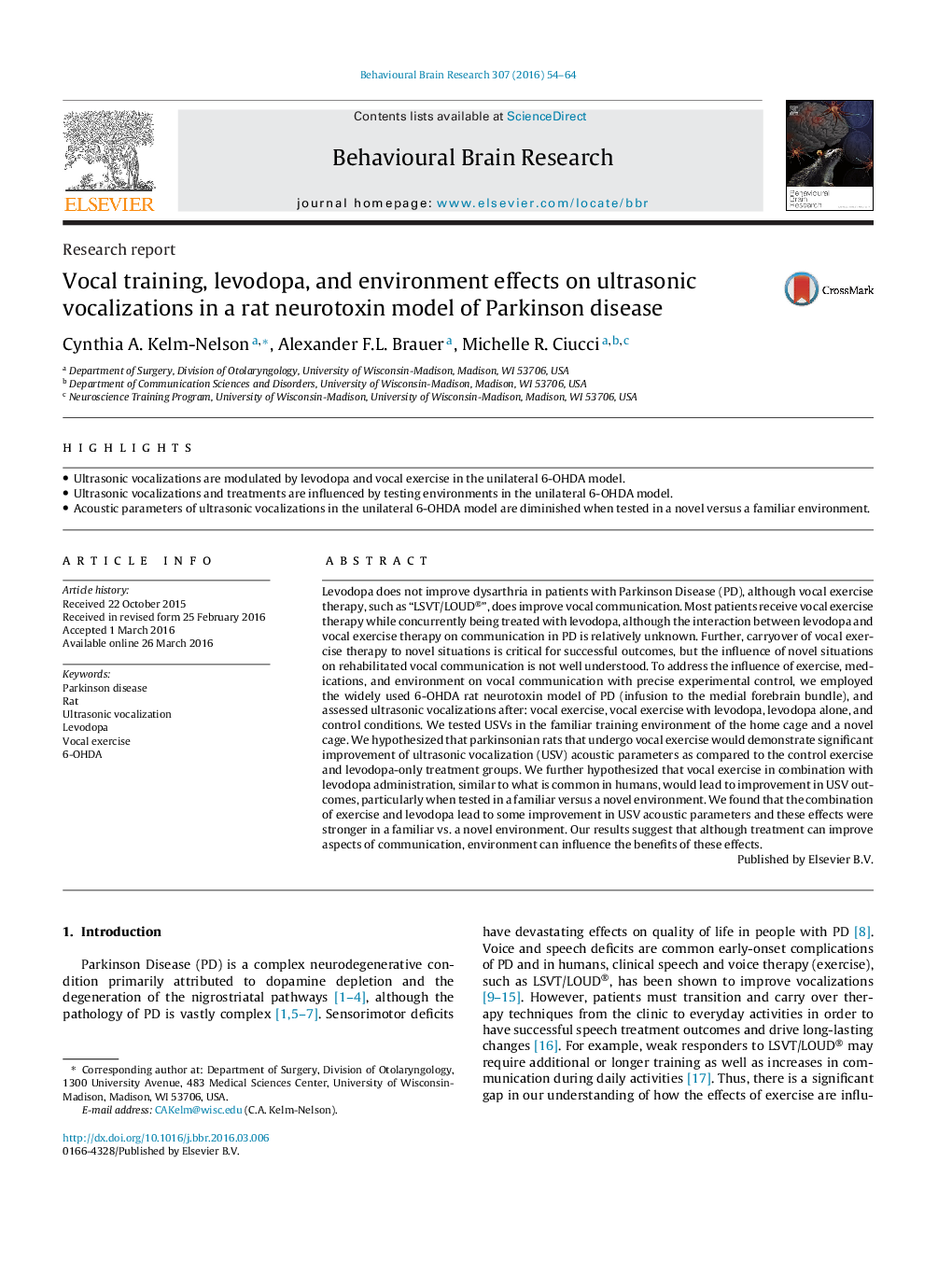| کد مقاله | کد نشریه | سال انتشار | مقاله انگلیسی | نسخه تمام متن |
|---|---|---|---|---|
| 4312254 | 1612926 | 2016 | 11 صفحه PDF | دانلود رایگان |
• Ultrasonic vocalizations are modulated by levodopa and vocal exercise in the unilateral 6-OHDA model.
• Ultrasonic vocalizations and treatments are influenced by testing environments in the unilateral 6-OHDA model.
• Acoustic parameters of ultrasonic vocalizations in the unilateral 6-OHDA model are diminished when tested in a novel versus a familiar environment.
Levodopa does not improve dysarthria in patients with Parkinson Disease (PD), although vocal exercise therapy, such as “LSVT/LOUD®”, does improve vocal communication. Most patients receive vocal exercise therapy while concurrently being treated with levodopa, although the interaction between levodopa and vocal exercise therapy on communication in PD is relatively unknown. Further, carryover of vocal exercise therapy to novel situations is critical for successful outcomes, but the influence of novel situations on rehabilitated vocal communication is not well understood. To address the influence of exercise, medications, and environment on vocal communication with precise experimental control, we employed the widely used 6-OHDA rat neurotoxin model of PD (infusion to the medial forebrain bundle), and assessed ultrasonic vocalizations after: vocal exercise, vocal exercise with levodopa, levodopa alone, and control conditions. We tested USVs in the familiar training environment of the home cage and a novel cage. We hypothesized that parkinsonian rats that undergo vocal exercise would demonstrate significant improvement of ultrasonic vocalization (USV) acoustic parameters as compared to the control exercise and levodopa-only treatment groups. We further hypothesized that vocal exercise in combination with levodopa administration, similar to what is common in humans, would lead to improvement in USV outcomes, particularly when tested in a familiar versus a novel environment. We found that the combination of exercise and levodopa lead to some improvement in USV acoustic parameters and these effects were stronger in a familiar vs. a novel environment. Our results suggest that although treatment can improve aspects of communication, environment can influence the benefits of these effects.
Journal: Behavioural Brain Research - Volume 307, 1 July 2016, Pages 54–64
